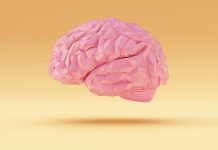
New Research Suggests Potential Novel Treatment Approach for PTSD
A groundbreaking study led by Dr. Siqiong June Liu, Professor of Cell Biology and Anatomy at LSU Health New Orleans, reveals that cerebellar inhibitory interneurons play an essential role in the formation of fear memory.
This type of emotional memory formation has long been understood to be linked with the cerebellum, a region of the brain primarily known for controlling motor coordination.
The findings of this research have been published in Cell Reports and could pave the way for innovative treatments for conditions like post-traumatic stress disorder (PTSD).
Key Findings
The research emphasizes the role of cerebellar inhibitory interneurons, which act as gatekeepers in the cerebellar circuitry, controlling its output.
According to Dr. Liu, “Silencing molecular layer interneurons completely abolishes fear memory, revealing their critical role in memory consolidation.”
Beyond Synaptic Plasticity
Traditionally, synaptic plasticity has been considered as the fundamental mechanism underlying learning and memory.
However, Dr. Liu notes that “modifications of the intrinsic excitability of neurons can amplify the output of neuronal circuits and consequently change behavior.”
The research team found that fear conditioning suppresses hyperpolarization-activated cyclic nucleotide-gated (HCN) channels, thus enhancing the excitability of cerebellar interneurons.
Neurobiological Mechanisms
HCN channels are likened to pacemakers within the brain, regulating rhythmic activity and facilitating communication between brain cells.
The study found that a learning-induced decrease in endocannabinoid levels drives the loss of HCN currents.
When the activity of these neurons is suppressed, the experimental animals do not form a memory of the experience, highlighting the critical role of cerebellar interneurons in fear memory formation.
Implications and Future Directions
The research has far-reaching implications, particularly in the context of emotional memory disorders like PTSD.
Dr. Liu concludes, “Our study reveals that activity in cerebellar interneurons drives fear memory formation via a learning-specific increase in intrinsic excitability.”
This suggests that targeting the activity of these interneurons could represent a new therapeutic approach for treating PTSD.
As our understanding of the neurobiological mechanisms involved in fear memory formation expands, the possibility of developing more effective and targeted treatments for emotional memory disorders becomes increasingly viable.
If you care about mental health, please see recent studies about how dairy foods may influence depression risk, and results showing Omega-3 fats may help reduce depression.
For more information about mental health, please see recent studies that ultra-processed foods may make you feel depressed, and extra-virgin olive oil could reduce depression symptoms.
The research findings can be found in Cell Reports.
Follow us on Twitter for more articles about this topic.
Copyright © 2023 Knowridge Science Report. All rights reserved.



